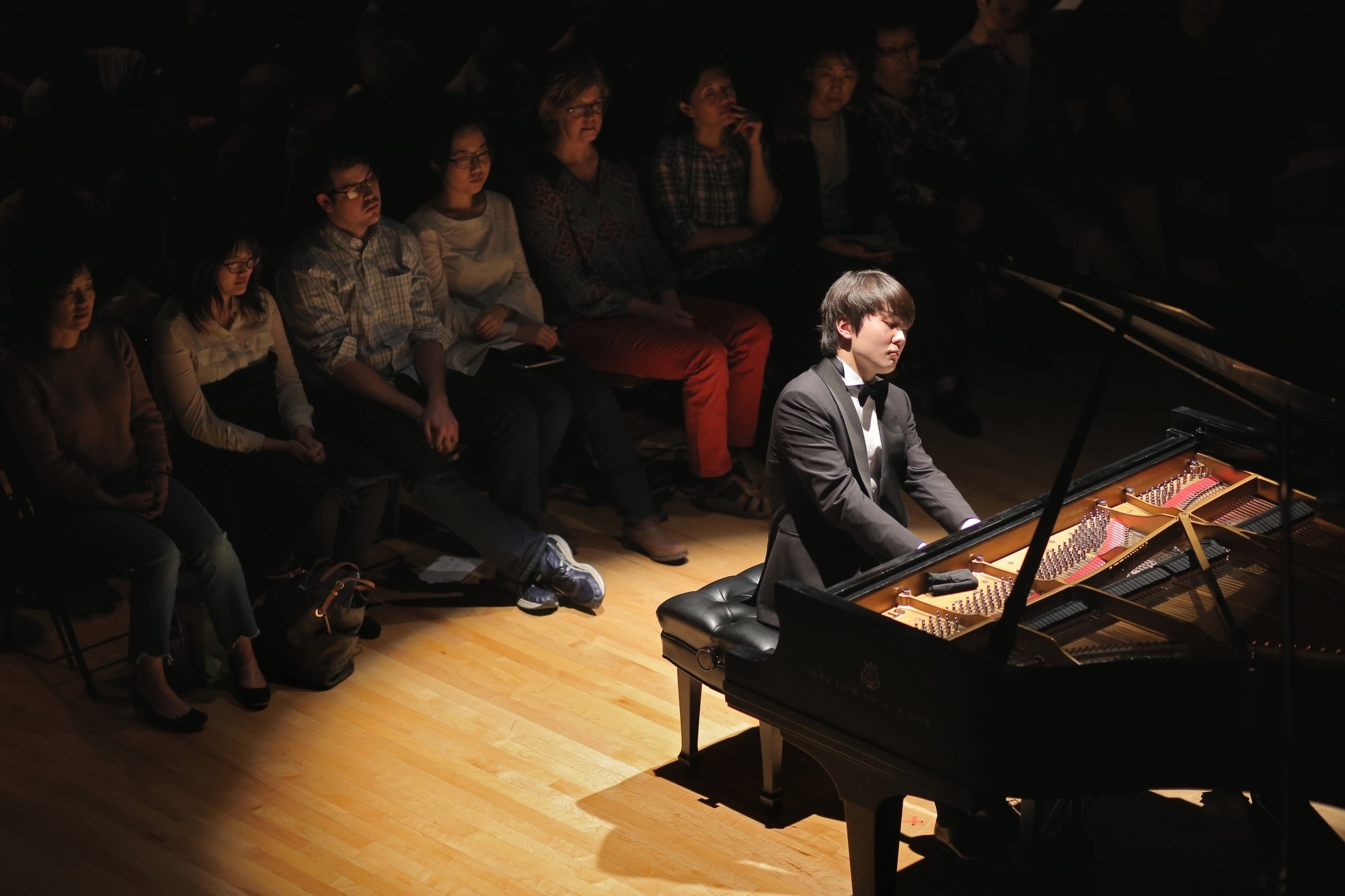The International Chopin Piano Competition has launched the careers of many internationally-renowned artists.
That includes Seong-Jin Cho, who has achieved K-Pop level-stardom in Korea and an exclusive recording contract with Deutsche Grammophon since winning the competition in 2015. The Seoul native presented a sold-out concert as part of the Gilmore Keyboard Festival’s Rising Stars Series on Sunday.
Undoubtedly an assured and technically-brilliant pianist, Cho’s performance featured his emotional range with three contrasting Romantic-era works.
The program began with Alban Berg’s first-and-only Piano Sonata. A landmark of early 20th-century music, Berg’s sonata was influenced by the highly expressive music of Gustav Mahler, as well as the avante-garde and dissonant techniques invented by his teacher, Arnold Schoenberg. Cho’s interpretation leaned more emotive than thorny, with careful attention to the work’s unstable shifts in tempo, sensitive dynamics and dense harmonies.
Next, Cho performed a controlled rendition of Franz Schubert’s Piano Sonata in C Minor, No. 19, D. 958. Written during the last months of the composer’s life in 1828, the piece grapples with creativity in the face of death as well as in the shadow of Beethoven (Schubert’s idol), who died in 1827.
Schubert’s choice of key is significant, as C minor is used in some of Beethoven’s best known works concerning triumph over fate, including the Fifth Symphony. Cho’s attention to the deepening contrast between dark and light spoke to the work’s grim context. His tranquil take on the third movement, exhibiting an underlying restlessness in anticipation of the stormy tarantella rhythms in the fourth movement, was particularly memorable.
It was clear in the concert’s second half, which featured Chopin’s 24 Preludes, that Cho felt completely at home and free to let his imagination roam. Each of the 24 preludes convey a specific idea or emotion, and Cho took the opportunity to explore the full range of Chopin’s poetic melodies.
Highlights included a powerful and tender performance of Prelude No. 15 (often called the “Raindrop” prelude for its gentle persistence), and Prelude No. 20, which was imbued with great dignity without being angsty. Cho ended the final prelude with much aplomb as he pounded out the concluding notes with his fist.
Following a lengthy standing ovation, Cho emerged again to play not one, but two encores. The first few notes of Debussy's "Clair de Lune” elicited adoring whispers from the audience.
Cho’s combination of sensitivity and bravura is evocative of his predecessors and great Chopin interpreters, such as Artur Rubinstein and Vladamir Horowitz. Perhaps there is room for a tad more abandon in Cho’s playing, but Sunday’s concert indicated that the young pianist is on his way to earning a place among the greats.





